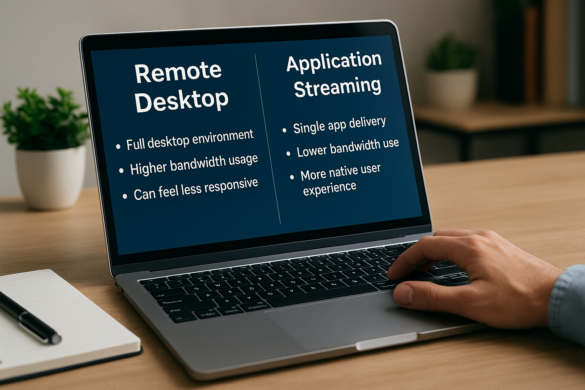
While it’s not rocket science, marketing can either make or break your brand. The following 10 most common marketing strategy mistakes small businesses make are illustrative of what not to do.
With an increasing number of businesses moving operations exclusively online and a more tech savvy audience, you need to work on building a strong online brand and presence (if not omnipresence). With a bit of creativity you can generate serious interest in your brand, which translates into more traffic to your website, more consumers and more money.
Avoid Self-Promotion
The first and most common marketing mistake that small businesses make is not doing it at all. The reasons why you might not be doing it are varied. For instance, some entrepreneurs think that their product is so good that it doesn’t need promotion and news about it will spread by word of mouth over time. However, how will people learn about what you have to offer unless you tell them?
Other companies may choose to go silent about their offerings because their founders are not comfortable talking about and promoting themselves. That’s a big downside, especially if you have a good product. Ideally startups should have two founders, if one doesn’t like rhetoric, the other one should be able to ‘cover’.
Blog posts help a lot especially in the early days of a business and share them on social media. People go digital these days, while SocMed is your word of mouth. Don’t be afraid to spread the word about how great you are!
Keep It a Secret
Biggies like Google or Apple are musters of keeping secrets close to their vest, but they can afford it. The rest of us have to give away everything we’ve got if we want to stay competitive.
You can do that by running email or social media campaigns. While this strategy may not yield immediate results, it will definitely help you get noticed and attract attention on your brand. Check out getabstract.com for more information.
Go on Limited Edition
Avoid freebies. You may make the sign up free, however, this does not mean that you cannot ask for anything in exchange. For instance, Dropbox is doing exactly that by selling most of their products as ‘limited edition’.
By closing in the garden, you will stir the interest of your clients and they will buy into your idea.
Notion.so is another example of an ‘intelligent’ business who would not give their farm away easily. By asking members to sign up others to their free plan in order to continue using it for extended time, they expand their customer database maximizing their chances to sell. Once you get the chance to use their product and see how user-friendly it was developed and how fast you can actually create a website, you’re hooked and will want to continue using the product, which you will be able to only if you sign up for the paid version. Also, by signing up your friends to the gig, you spread the word on how great Notion is. After all, word of mount works better. Give it a thought and adapt this strategy to your brand and business model.
Undermining the Influence of SEO
Small businesses and startups have the great advantage of being the new kids on the market and hence, SEO is a powerhouse they need to take advantage of to make themselves known. Many of them overlook the influence of SEO, giving it the last place on their to-do list.
That is definitely not a thing you should be doing, as a high ranking on search engines can trigger more visits to your website and thus create awareness about your brand.
With so much information about SEO out there, it is almost a DIY job. Plus, if you make effective use of keywords or phrases and include hashtags at the bottom of every article you post on your web page, chances are high that your Google ranking will improve. With proper online SEO in place, you may not even focus so much on offline SEO (although, don’t ignore it completely! One piece on a guest-post blog once in a while will do, otherwise it could be perceived as spamming technique). It’s not rocket science!
Create a Blog
Another pitfall that leads small businesses to ruin is not having a blog. Regardless of the size of your target audience or line of business, blogging is a must if you’re looking to build an outstanding online reputation and build a brand. A blog helps spread the word on what you do while it also engages readers into lively conversation. Let your customers have their say, it will help you in the long run! In this way, you will learn more about their needs and gain quick insights into the areas that might need improvement. Start with one post a day and you will see miracles do happen!
Closed to the Local Market
With Google search getting more geo-targeted and ‘personalized’, search results are customized for your location. Many small businesses ignore that.
Getting global searches is important, but local searches also matter. After all, you first reach out to potential customers in your area and then to the rest of the world. To make sure they find you, you may consider adding your business name to your location on the map.
Not Being Social
Social media is a powerful marketing tool nowadays, with more and more business moving operations entirely online. Some businesses ignore the potential of social networks in generating traffic and creating brand awareness. Channels like Facebook, Twitter, Google+, Instagram, etc. do not provide space for online cocktail-parties. Creating an active social media presence has the great potential to boost your website traffic and generate more leads.
However, don’t expect miracles overnight. Building a brand takes time and patience. First you need to get noticed and this is where social media comes in. Engage with your audience, create a connection with potential customers and the rest will follow. Add social media icons on your web page and ask visitors to follow you.
Shun Guest Posting
Guest posting is one of the most powerful methods to get exposure, generate traffic and leads. Writing for blogs like Huffington Post, Problogger or Lifehacker is an excellent opportunity to draw attention on your brand. Sites like these are always seeking fresh content, which you have the ability to provide.
Alternatively, you can consider searching for blogging opportunities in your line of business (e.g: blogging opportunities in [area of industry]), check out their guidelines and fire out proposals.
Take Happy Customers For Granted
Many businesses create happy customers and soon fail to rise to the level of their expectations. That usually weighs a lot on the shoulders of a startup. Not only can you lose a customer that way, but you also lose an advocate for your business.
One way to keep your clients happy and promote their excitement is to run satisfaction surveys or doing case studies. This is how successful businesses build their brands.
Testimonials also work very well. Include a ‘Feedback’ section on you website and even include positive comments in media campaigns.
Ignoring Newbies
Some companies have an expert-oriented attitude that gives newbies or non-experts a cold shoulder. This mindset will backfire since you only address a niche of specialists and insult the larger audience. Don’t ignore them, include them! Beginners also have a huge buying potential and hold promise to become loyal customers if they are treated like all your other expert clients. Create beginner guides for your products or services. These user manuals will create traffic and create brand awareness.
Long story short, now that you know what you should not do as a small business owner, all you need is creativity and the sky is the limit!









